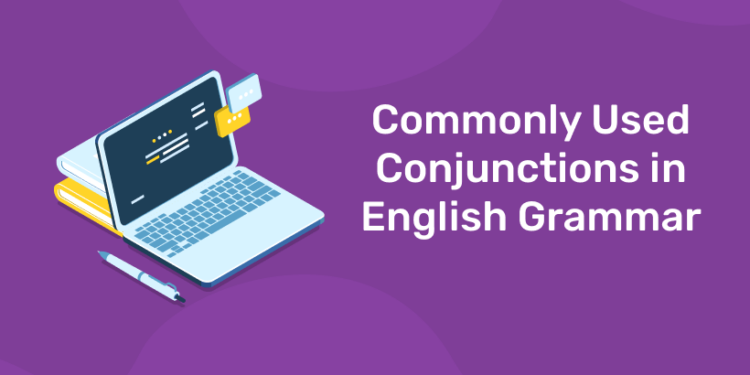Table of Contents
This is the generation where English language has more importance than any other language. Wherever we go, the primary language used all over the world is English whether it be job related, government examination, institution or in any organization. Meanwhile, the number of people wanting to learn the English language is also very high. As of now, there are various online/offline methods of learning where people can master the English language with less effort. It’s not about simply knowing the language but developing good grammar is essential. Here the article ‘Commonly Used Conjunctions in English Grammar’ will guide you in understanding the conjunction rules, its usage etc. Check out the article for more conjunction words.
Download the Entri app! Grab the latest study materials on English gramma
Conjunction Definition
Conjunction can be defined as a word that connects multiple words, phrases and sentences or clauses. In the English lanssguage there are many conjunctions, some of the very commonly used are or, but, and, for, if, when and because.
Types of Conjunctions
1: Which of the sentences below is grammatically correct?
The Coordinating, Subordinating and Correlative are the three basic types of conjunction.
1. Coordinating Conjunction
These are primarily used to connect phrases, words and clauses which are coordinated or co equal to one another. Commonly used coordinating conjunctions are of seven types; for, and, nor, but, or, yet, so. The coordinating conjunction can be reminisced using the abbreviation ‘FANBOYS’. The table given below contains differences in usage of these conjunctions;
| Coordinating Conjunction | Purpose | Example |
| For | Used to show reason | He bought an apple, for he was hungry. |
| And | Used to add information | Daicy lives in Alaska, and she is a park warden at the National Forest there. |
| Nor | Used to add negative information | She does not enjoy eating meat, nor does she enjoy eating vegetables. |
| But | Used to show contrast | The math class was difficult, but everyone got passing grades. |
| Or | Used to give a choice | We can go for a movie, or we can go to a beach. |
| Yet | Used to show concession/contrast | The exam was tough, yet everyone received more than a ‘C’ grade. |
| So | Used to show result | I woke up late today, so I missed the school bus. |
Note:
- Comma cannot be used, when a coordinating conjunction connects only two phrases, two words/ two dependent clauses.
- You should not put a comma after a coordinating conjunction, which joins two independent clauses.
English grammar topics for beginners! Click Here!
2. Correlative Conjunctions
In English the correlative conjunctions are mainly used to build fluency and to reduce sentence breaking, that are used along with coordinating and subordinating conjunctions. The correlative conjunction operates in pairs to correlate two sections of an equally important sentence. Usually, the correlative conjunction links two singular subjects together with a singular verb or connects two plural subjects with a plural verb. This relation applied by the correlative conjunction between two subjects or two verbs performs mutually with each other. Check the table given below for examples of correlative conjunction;
| Correlative Conjunctions | Examples |
| Both /And | We’ll both be going to the party and taking one car. |
| Neither /Nor | I will neither eat the chocolate nor the cake. |
| Either /or | My sister is either cleaning upstairs or assembling off downstairs. |
| Whether /Or | I am not sure whether you have to write it or not. |
| Not only /But also | I am not only tired but also sleepy. |
| Rather /Than | I would rather go than sit here. |
| Such /That | Such a beautiful flower that I cannot take my eyes off it. |
Note:
- Always put a comma with independent clauses.
- Check out for double negatives.
- Know your subject-verb agreement.
- Ensure the pronoun agreement.
- Check whether your sentence has a parallel structure.
Register Here! To learn the important grammar topics for spoken English to crack interviews!
3.Subordinating Conjunctions
Subordinating conjunction is commonly used in the English language. It’s a word or phrase that connects a dependent clause to an independent clause. This particular word or phrase shows that a clause has an informative value that accounts to the sentence point, indicating cause and effect interrelation or switch in period and scene joining the two clauses.
Example
- “Rahul wasn’t allowed in the team any longer” something is missing in this sentence. Now let’s add an independent clause “Rahul wasn’t allowed in the team any longer” Combine the two in a complex sentence “Rahul wasn’t allowed in the team any longer because he violated the rules”. The above sentence “Rahul wasn’t allowed in the team any longer” is an independent clause. Here ’because’ is the clause of purpose.
Some other subordinating conjunctions operates in the same way are; as, for, since, though, provided that, unless, because of, unless, so, so that, after, only if, lest, now that, whether or not, where, whereas, until, if, once, that, since, even though, while, although, after, as if, as long as, as though, than, when, unless, in case, in the even that, in order that, by the time and so on.
Get the latest free video classes on spoken English courses! Click Here!
Hope the article ‘Commonly used Conjunctions in English Grammar’ was informative for you. If you’re the one planning to learn the English language, then try to focus on developing speaking and listening skills before getting into the grammar section. If you can communicate smoothly, the grammar will come in track. Download and join the Entri app now which will guide you in the right direction.









